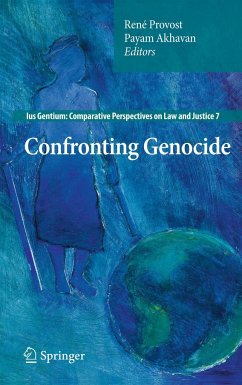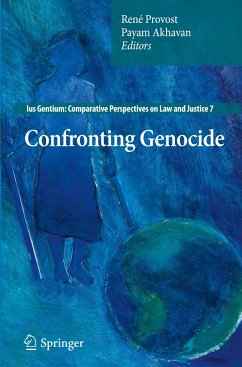
Genocide and International Relations
Versandkostenfrei!
Versandfertig in über 4 Wochen
32,99 €
inkl. MwSt.

PAYBACK Punkte
16 °P sammeln!
Genocide and International Relations lays the foundations for a new perspective on genocide in the modern world. Genocide studies have been influenced, negatively as well as positively, by the political and cultural context in which the field has developed. In particular, a narrow vision of comparative studies has been influential in which genocide is viewed mainly as a 'domestic' phenomenon of states. This book emphasizes the international context of genocide, seeking to specify more precisely the relationships between genocide and the international system. Shaw aims to re-interpret the class...
Genocide and International Relations lays the foundations for a new perspective on genocide in the modern world. Genocide studies have been influenced, negatively as well as positively, by the political and cultural context in which the field has developed. In particular, a narrow vision of comparative studies has been influential in which genocide is viewed mainly as a 'domestic' phenomenon of states. This book emphasizes the international context of genocide, seeking to specify more precisely the relationships between genocide and the international system. Shaw aims to re-interpret the classical European context of genocide in this frame, to provide a comprehensive international perspective on Cold War and post-Cold War genocide, and to re-evaluate the key transitions of the end of the Second World War and the end of the Cold War.














